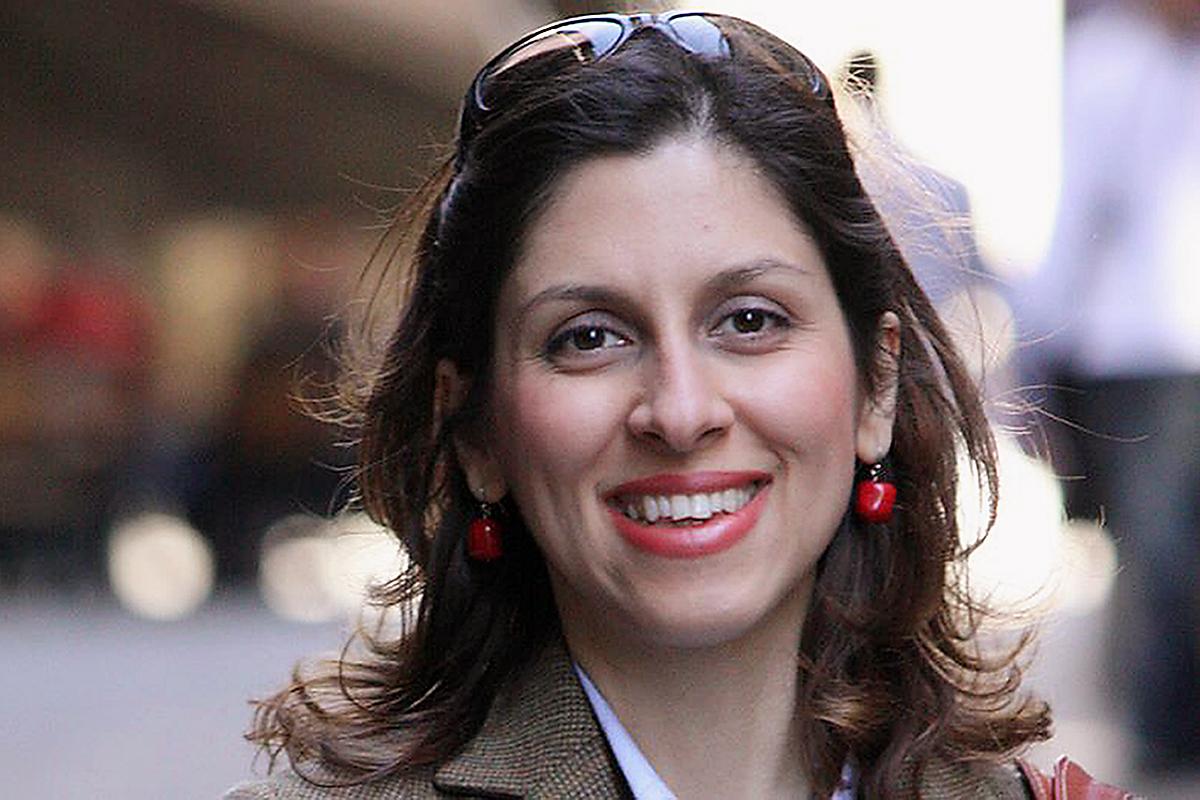Nazanin Zaghari-Ratcliffe: Boris Johnson to express 'grave concerns' about British mother jailed in Iran
Foreign Secretary says he wants the visit to be 'constructive'

Your support helps us to tell the story
From reproductive rights to climate change to Big Tech, The Independent is on the ground when the story is developing. Whether it's investigating the financials of Elon Musk's pro-Trump PAC or producing our latest documentary, 'The A Word', which shines a light on the American women fighting for reproductive rights, we know how important it is to parse out the facts from the messaging.
At such a critical moment in US history, we need reporters on the ground. Your donation allows us to keep sending journalists to speak to both sides of the story.
The Independent is trusted by Americans across the entire political spectrum. And unlike many other quality news outlets, we choose not to lock Americans out of our reporting and analysis with paywalls. We believe quality journalism should be available to everyone, paid for by those who can afford it.
Your support makes all the difference.Foreign Secretary Boris Johnson will express "grave concerns" regarding jailed British mother Nazanin Zaghari-Ratcliffe during his visit to Iran.
Mr Johnson's trip to Tehran this weekend is only the third by a UK Foreign Secretary since 2003 and comes at a time of tension in the Middle East over Donald Trump's announcement that he is recognising Jerusalem as the capital of Israel.
In wide-ranging talks with Iranian foreign minister Mohammad Javad Zarif, Mr Johnson will seek to shore up bilateral relations and urge Tehran to stick by the terms of its 2015 nuclear deal.
Ms Zaghari-Ratcliffe is serving a five-year sentence over allegations, which she denies, of plotting to overthrow the Tehran government, having been arrested in 2016 during a holiday visit to show her baby daughter Gabriella to her parents.
Reports suggest she could appear in court again over the weekend, following threats to increase her sentence by five years following Mr Johnson's gaffe of telling a parliamentary committee that she had been in Iran to train journalists. He later acknowledged this was not the case.
Mr Johnson said he wanted the visit to Iran to be "constructive".
He said: "Iran is a significant country in a strategically important, but volatile and unstable, region which matters to the UK's security and prosperity. My first visit is an opportunity to hold further discussions on a series of crucial issues, including how we can find a political solution to the devastating conflict in Yemen and secure greater humanitarian access to ease the immense suffering there.
"I will also underline the UK's continued support for the nuclear deal while making clear our concerns about some of Iran's activity in the region. We will also discuss our bilateral relationship and I will stress my grave concerns about our dual national consular cases and press for their release where there are humanitarian grounds to do so.
"While our relationship with Iran has improved significantly since 2011, it is not straightforward and on many issues we will not agree. But I am clear that dialogue is the key to managing our differences and, where possible, making progress on issues that really matter, even under difficult conditions. I look forward to a constructive visit."
It is understood that Ms Zaghari-Ratcliffe's husband Richard will not accompany Mr Johnson after receiving advice that it may not help his chances of seeing his wife in prison.
Tehran does not recognise Mrs Zaghari-Ratcliffe's dual UK-Iranian nationality, and refuses access to her for representatives of the British authorities, making a prison visit for the Foreign Secretary unlikely during the trip.
Hers is one of a small number of cases of dual nationals whose release Britain is seeking on humanitarian grounds on which Mr Johnson will push for progress.
The Foreign Office has declined to name the other individuals involved - or even identify the number in jail - after their families asked for their cases to be kept out of the public eye.
Relations with Iran have been strained in recent years, despite the reopening of the UK embassy in Tehran in 2015, but London has detected possible signs of greater openness to dialogue in recent months.
Subscribe to Independent Premium to bookmark this article
Want to bookmark your favourite articles and stories to read or reference later? Start your Independent Premium subscription today.
Join our commenting forum
Join thought-provoking conversations, follow other Independent readers and see their replies
Comments